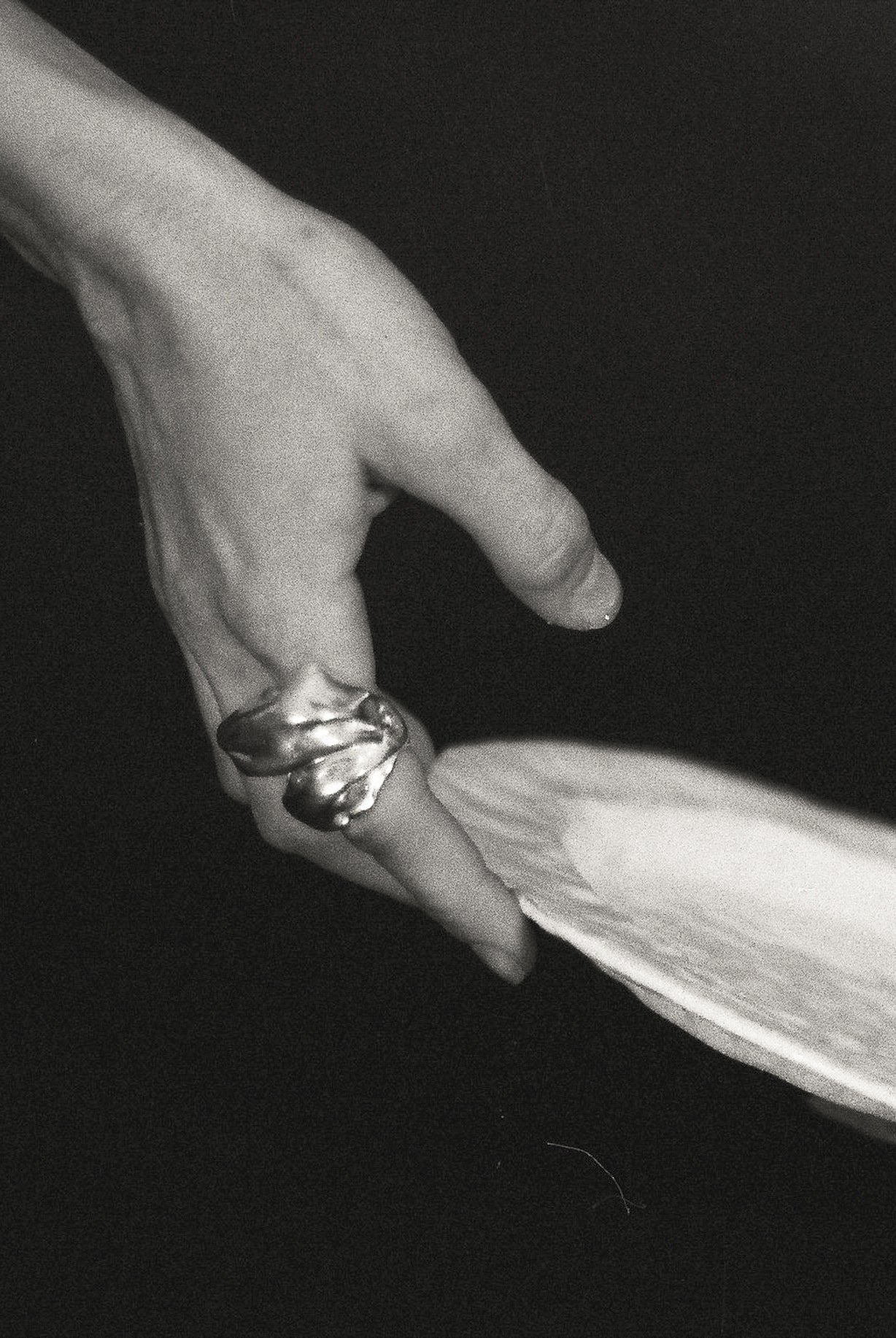
Simuero the beauty and the rough
We met again on a sunny winter day. It was a Sunday. Sitting at the table, around a paella. Familiar faces and a desire to share our experiences.

The following lines relate the conversation that took place after the meal. On one side, Alejandra and Coke from Estudio Vernís, on the other, Rocío and Jorge from Simuero. We wanted to talk about something that concerns us, touches us and matters to us: our work. We wanted to share our vision on this subject with no specific aim other than to get to know each other better.
Rocío: We have achieved technical perfection in so many aspects of life that we have lost the feeling of being alive and the importance of living.
The vital desire to feel again, to express, to seduce, to desire. This could be the guiding principle that has been shared since the beginning of industrialization by many artisans: to seek beauty by resisting the normalization and standardization of our lives.

But how to get out of the ball and not die trying?
Jorge: The traces, the wrinkle, the scratch, the imperfect could be very clear vehicles that manifest the artisanal, but industry has already incorporated them, as for example in the traces of a franchised pizza dough. So how do you show that artisanal process without having to explain it?
Alejandra: In the book The Beauty of the Everyday Object, Soetsu Yanagi talks about praising the defect. In the end, we like to think that each piece can tell the story of the process that shaped it.
Rocío: For me, the only way is communication. It is also true that if there is one thing that reveals our artisanal process, it is the weight of the piece. The industry can't afford to use so much material in jewelry because of the profit margin.
As far as scale is concerned, small workshops are the only structure that guarantees a closer and more humane treatment.

From 1891 until his death in 1896, William Morris founded a printing press with Emery Walker, his neighbour and friend. The Kelmscott Press produced the most expensive and exclusive books of the time while its founder preached the principles of socialism. Critics of the time wondered how a socialist could be making books inaccessible to most people. Was this not a contradiction? Morris replied to his critics:
"I wish-I wish indeed that the cost of the books was less, only that is impossible if the printing and the decoration and the paper and binding are to be what they should be."
Jorge: are we [as a society] willing to pay for these conditions of respect for craftsmen, or to put it another way, is there enough money in critical minds to sustain this counterbalance?
After more than an hour of conversation we ran out of saliva. We have to go look for the goats and continue with our chores.


Coke: With the political commitment that our projects entail... imagine if more people made this change. Suddenly the village or the neighborhood would be full of small workshops. One making pottery, another making clothes, jewelry, bread...
Jorge: We fantasize about that all the time, trade districts.
Rocío: The form of families, the way they relate to each other... all of that would be affected, you would create a network.
Alejandra: It's a more humble thing than saying I want to change the world, to do something on a small scale that you would like to see on a larger scale.
Rocío: In the end it wouldn't be that difficult.
Thank you Jorge and Rocío for coming up to these mountains to eat, share, talk and inspire us deeply.
